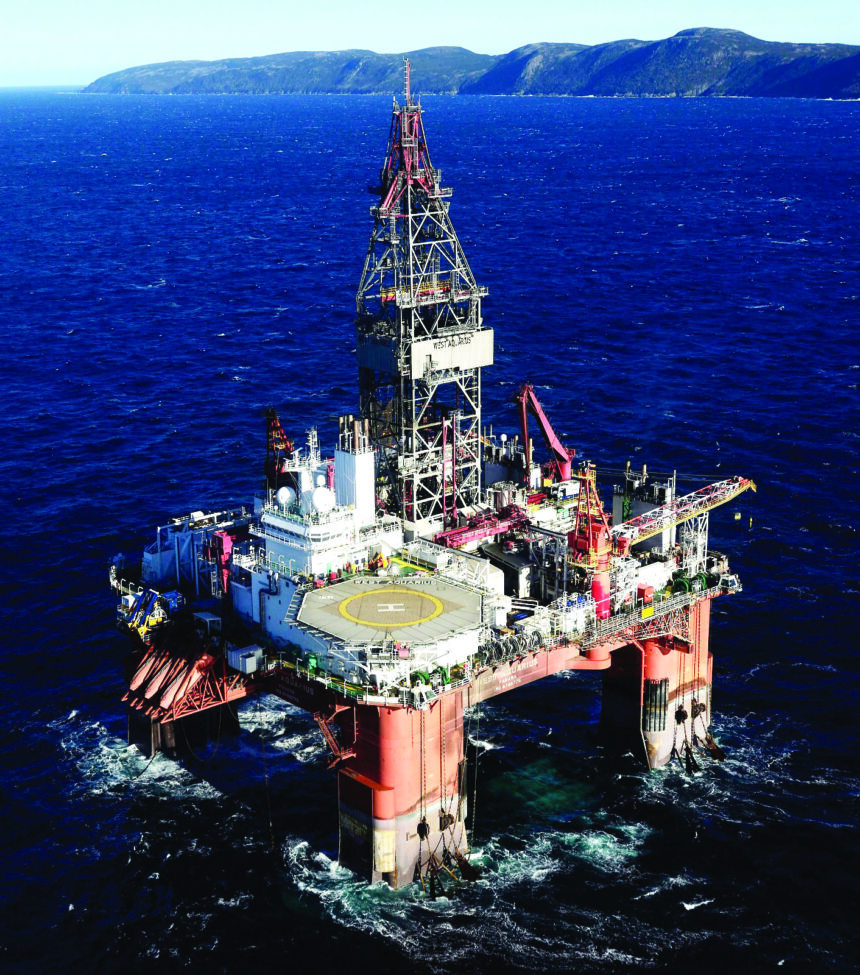Namibia could become a crude oil exporter in the early 2030s when several projects reach their production peaks.
This optimism is fuelled by concerted efforts to conclude appraisal, and shift the gear to development in the oil discoveries.
Interim managing director at the National Petroleum Corporation of Namibia (Namcor) Ebson Uanguta made these remarks while observing that benchmarks have led the country to anticipate new-build FPSOs with capabilities to produce between 100 000 and 150 000 barrels of oil per day as well as store approximately 1.4 to 2 million barrels of oil, while handling gas of over 500 million standard cubic feet per day.
FPSOs are sea-based floating vessels for oil production, storage and off-loading. They permit the processing and storage of oil and gas.
He was speaking during the second edition of the Namibia Oil and Gas Conference yesterday in Windhoek.
The three-day event is concluding today, and is discussing a broad spectrum of issues around investment opportunities, legal requirements, value chains, financing and job-creation in the emerging oil and gas sector.
The conference is held under the theme ‘The next step towards a prosperous oil and gas industry to power Namibia’s sustainable future’.
Petroleum Commissioner Maggy Shino noted that the energy ministry is analysing the data obtained to determine the commerciality of the oil. “Potential still exists in the basin. However, by 2025, we expect the first final investment decision to be made as the Namibian oil and gas projects are still in the pre-final investment decision now,” she said. At the same occasion, energy minister Tom Alweendo said Namibia continues to be a developing bright spot in the future of global energy supply. His statement was delivered by his deputy minister, Kornelia Shilunga.
Alweendo touched on the effective management of the Namibian oil and gas resources, saying it is a prerequisite to attaining a prosperous oil and gas sector for all.
“Good governance of the upstream petroleum sector is imperative to ensure that economic benefits related to the exploitation of oil and gas resources are shared fairly,” said the minister.
He noted that the emerging petroleum industry will not only bring transformational opportunities, but also challenges. The discovered oil and gas should be exploited in such a manner that it will make Namibia energy-independent.
Alweendo added that the sector should be leveraged to fast-track industrialisation, economic diversification and job-creation through the active participation of all Namibians in the sector’s value chain.
It is imperative that oil industry players contribute to the capacity-building of Namibians, and source their goods and services from local suppliers as much as possible, he emphasised.
“With regards to capacity-building, we expect oil companies to recruit talented Namibians to ensure meaningful skills and knowledge are transferred. Disappointingly, I have learnt that some oil companies in the industry are reluctant to employ Namibians. The government expects you to be transparent and fair in recruitment,” implored the minister.
Discoveries
Global supermajor Shell stated in July last year that it made a fourth successive discovery of light oil, more than 270km off Namibia’s coast in the Orange basin.
In March 2023, Shell, QatarEnergy and Namcor successfully concluded operations to drill a further exploration well, Jonker-1X, in the Petroleum Exploration Licence (PEL 0039).
The well was drilled to a total depth of over 6 000m in water depth of 2 210m. Drilling operations established the presence of a reservoir with light oil, marking Shell’s third discovery in the area.
Shell is the operator of PEL 0039 with a 45% working interest, together with QatarEnergy (45%) and Namcor (10%). PEL 0039 covers approximately 12 000 square kilometres in deep waters offshore Namibia.



